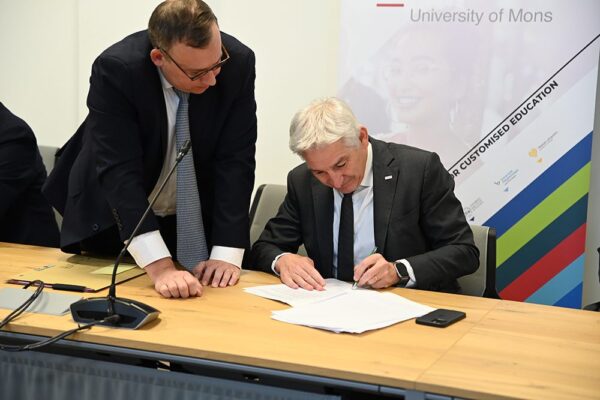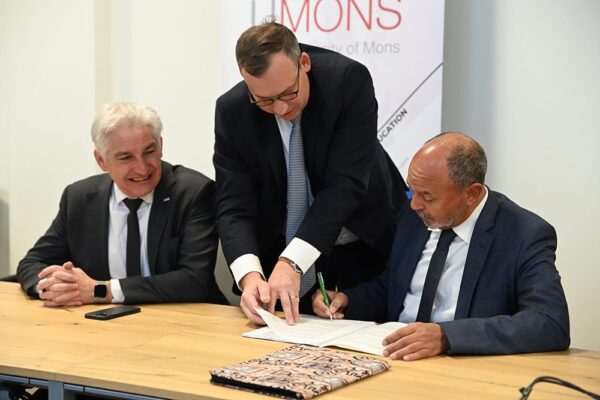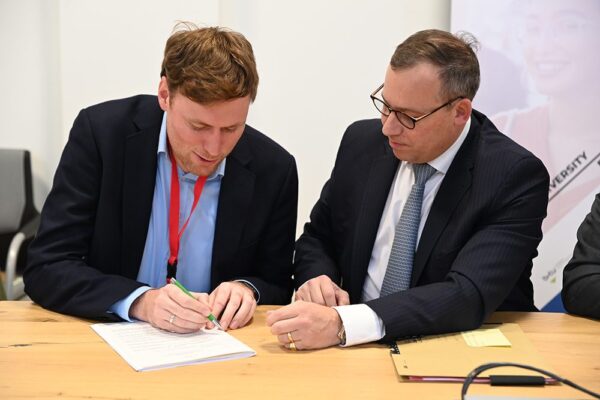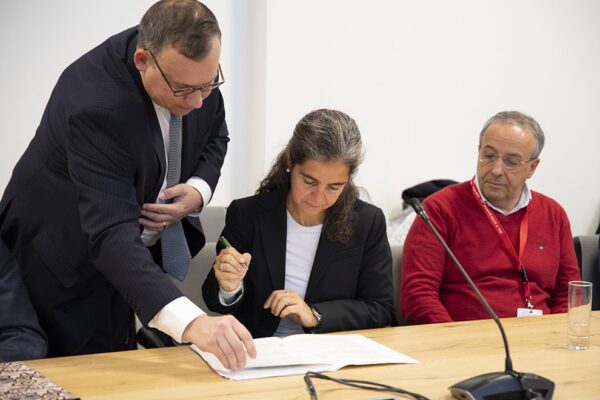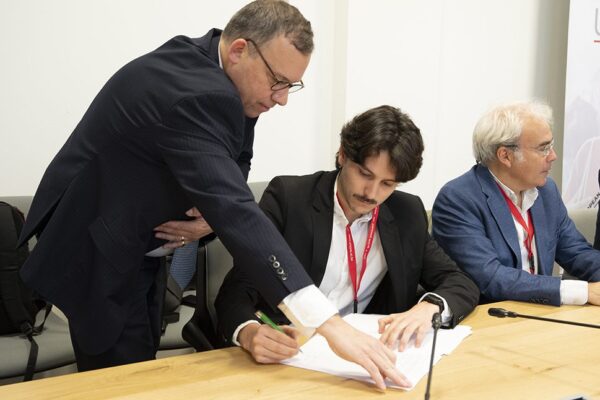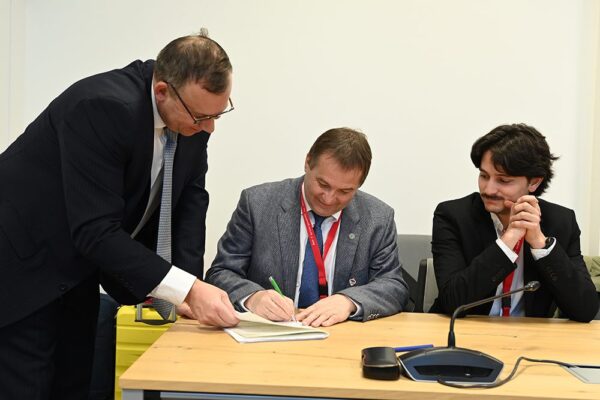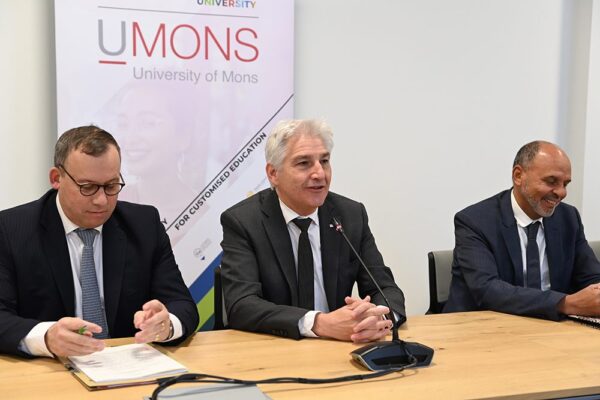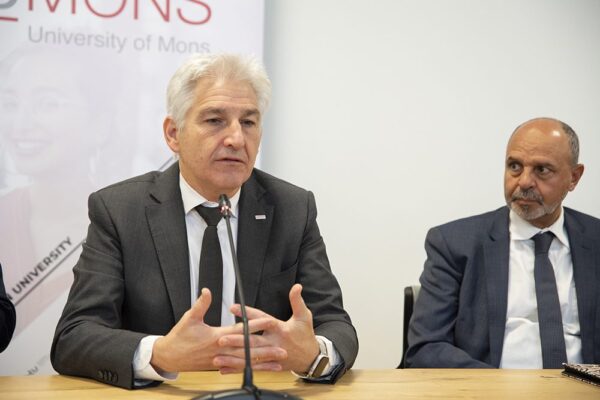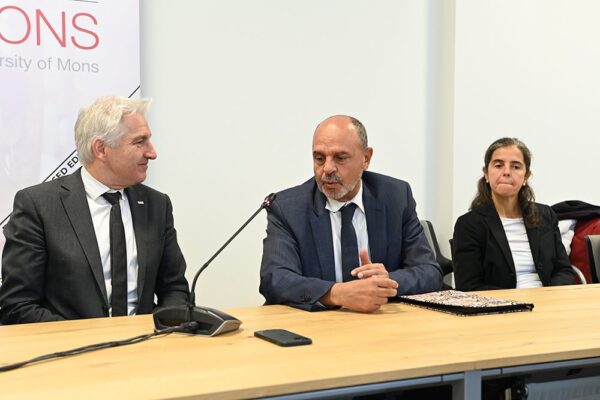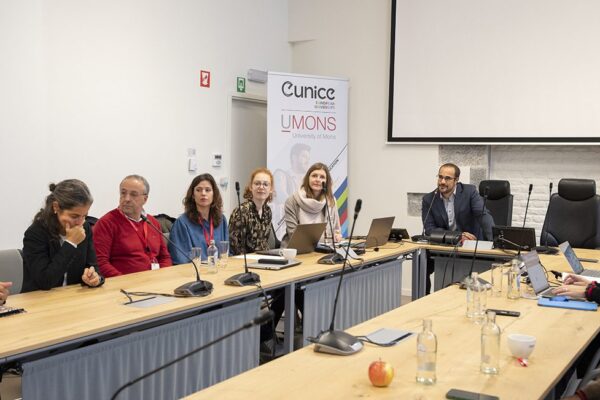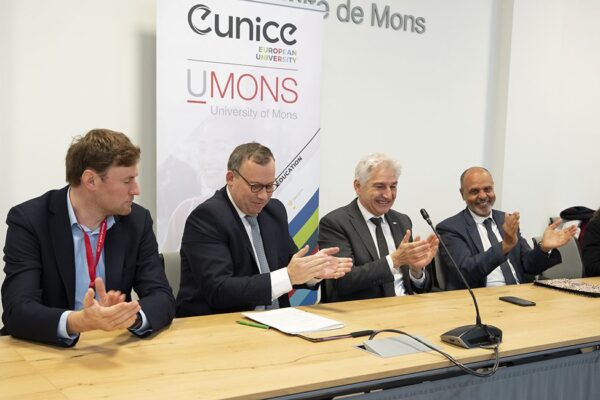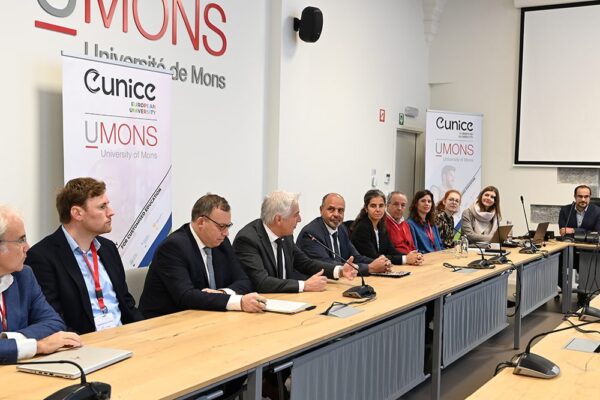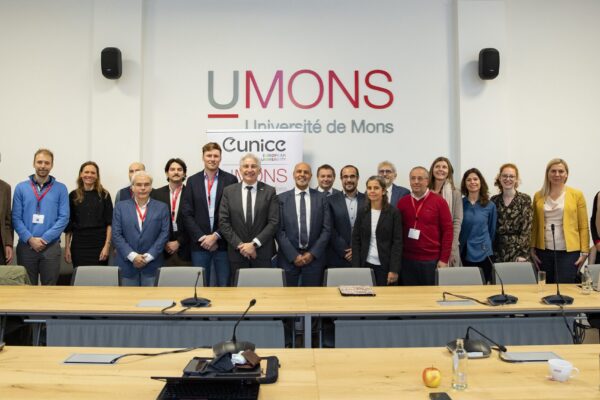The alliance signed in Mons (Belgium) its founding statutes as an international association before a notary
EUNICE European University officially became an institution upon the signing of its founding statutes before a notary. This event took place at the University of Mons (Belgium) last Wednesday, 16th November.
Thus, the legal form of the alliance will be, from now on, an international non-profit association -AISBL, abbreviated in French-.
Philippe Dubois, current Rector of the University of Mons, will be the First President of the AISBL and Abdelhakim Artiba -President of the Université Polytechnique Hauts-de-France-, its Vice-President.
This means a step forward as an alliance, given the fact that it will no longer be only a European project but also an international organisation.
EUNICE staff also took advantage for this face-to-face meeting in Mons to work on the future organisation of the alliance, as the upcoming second phase of the project will involve 10 partners. The three new partners are the University of Peloponnese (Greece), the Polytechnic Institute of Viseu (Portugal) and University of Karlstad (Sweden).
Caption: representatives from EUNICE partner universities signing the EUNICE statutes before a notary in Mons (Belgium).
About EUNICE
EUNICE, the European University for Customised Education, is designed to solve social and economic challenges, both globally and locally. In 2020, EUNICE was selected during the second call for pilot projects of European Universities of the European Commission. The alliance is nurtured by ten universities’ intellectual and infrastructure input –Poznań University of Technology (Poland), Brandenburg University of Technology (Germany), University of Cantabria (Spain), University of Mons (Belgium), University of Catania (Italy), Université Polytechnique Hauts-de-France (France), University of Vaasa (Finland), Polytechnic Institute of Viseu (Portugal), University of Peloponnese (Greece) and University of Karlstad (Sweden)–.
This alliance, born from the European Universities initiative and funded by the European Commission, is building a solid network of interactions between educational institutions and other agents to work on social and economic challenges.


